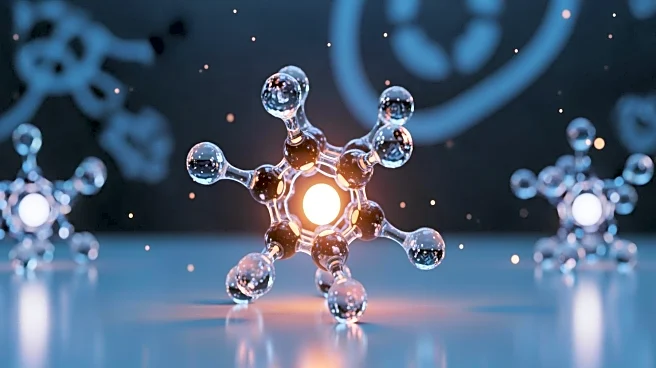What's Happening?
FutureBio, a company based in Berkeley, is developing a new type of plastic that is both durable and bio-renewable, aiming to address the global issue of plastic pollution. Unlike traditional petroleum-based plastics, this new plastic can be chemically
recycled back to its original monomers, allowing for high recycling rates and reduced environmental impact. The company is working on a chemical process developed at UC Berkeley to achieve this. FutureBio's efforts come amid increasing scrutiny of traditional plastics and their environmental harm, with the company aiming to replace petroleum-based plastics in the market.
Why It's Important?
The development of a new recyclable and durable plastic by FutureBio represents a significant advancement in addressing plastic pollution, a major environmental challenge. With only 9% of current plastics being recycled, this innovation could drastically reduce the amount of plastic waste ending up in landfills and the environment. The company's focus on creating a sustainable and profitable plastic aligns with global efforts to transition to a circular economy. This development could also influence policy and industry standards, encouraging more companies to invest in sustainable materials and recycling technologies.
What's Next?
FutureBio plans to deliver a market-ready product within two to three years, focusing on applications such as furniture and durable goods. The company is navigating investment challenges, particularly in the context of changing government policies on climate and energy. As FutureBio progresses, it will need to ensure the economic viability of its new plastic to attract investment and achieve widespread adoption. The success of this initiative could lead to increased collaboration with other industries and stakeholders, further promoting sustainable practices in plastic production and recycling.
















